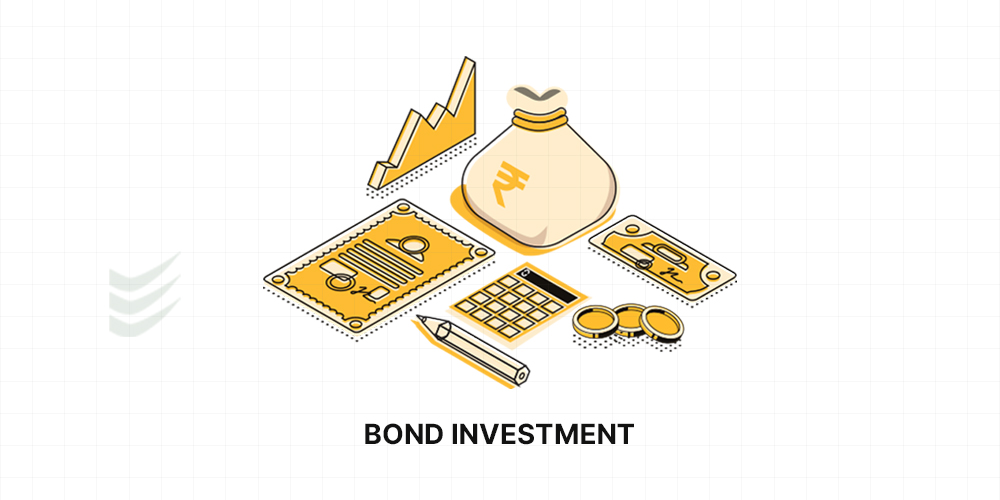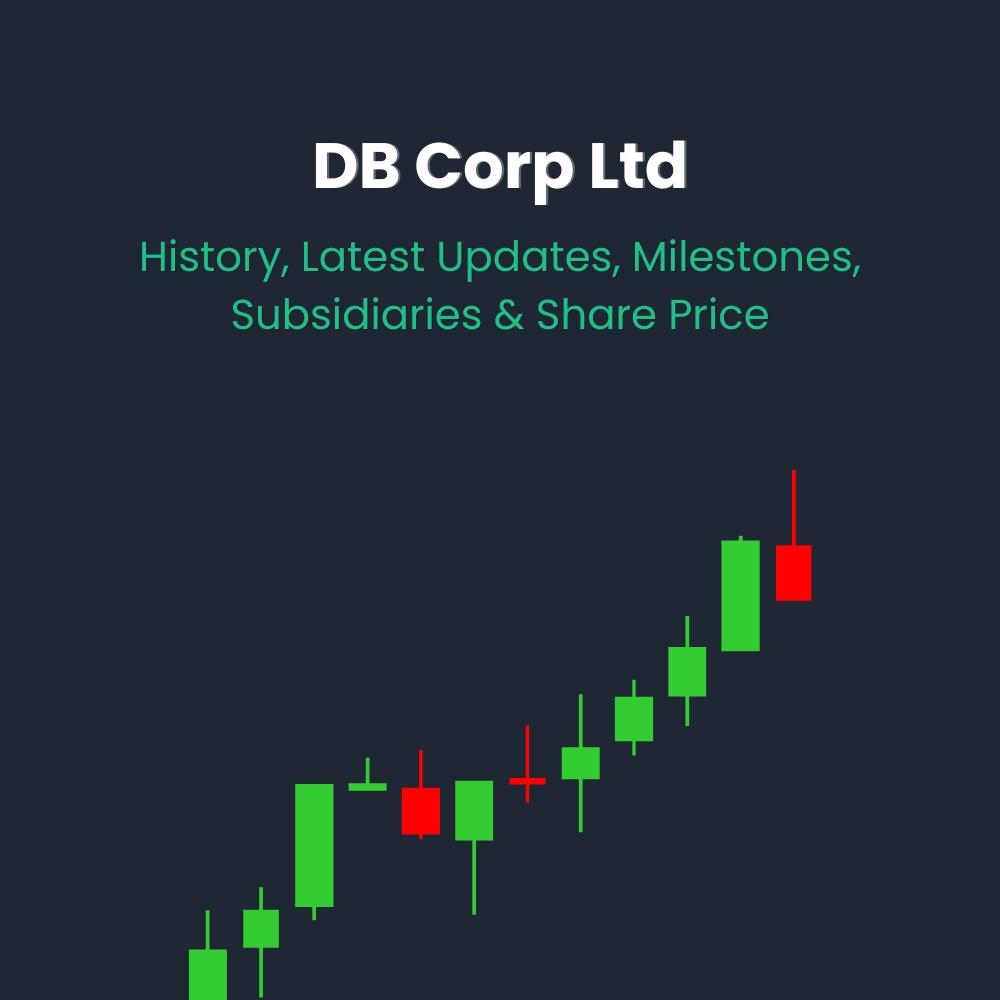Bond Investment in India

What is a bond?
India bonds are debt instruments that allow entities to secure funding and satisfy their capital needs.They represent a form of debt that borrowers obtain from individual investors for a specified period. Organizations, including companies, governments, municipalities, and other entities, issue bonds to investors in primary markets.Investing in bonds has become increasingly straightforward. Individuals interested in bond investment can easily open a Demat account and start their investment journey.
Characteristics of Bonds
Face Value: Face value is the amount a bond is worth at issuance, also called principal or par value. Issuers must return this amount to investors after a agreed period.
Tenure of Bonds: Tenure is the remaining period until a bond matures. It defines the duration of the issuer's financial and legal obligations to the investor.
Credit Quality: Credit quality reflects investors' confidence in a bond issuer’s long-term performance and is assessed by credit rating agencies based on default risk.
Tradable Bonds: Bonds can be traded in the secondary market, allowing ownership to change hands. Investors often sell bonds when prices rise above their face value, seeking better yields.
Types of Bonds
Bonds offer relative certainty, stability and security as compared to equity. With various types available, it’s important to grasp their unique features and advantages to make informed choices.
Corporate Bonds: Issued by companies to raise capital. These bonds usually offer higher yields compared to government bonds but come with higher risk depending on the issuer's credit rating. Ex:- Company bonds in India provide investors with a means to support businesses while potentially earning higher returns compared to government bonds.
Government Bonds: A government bond is a debt security issued by the government to fund its spending. When you buy a government bond, you’re lending money to the government and in return, you receive agreed interest payments and get back your principal when the bond matures. Government bonds in India provide investors with a stable investment option backed by the nation's creditworthiness.Ex:- The National Highway Authority of India bonds offer investors a chance to support infrastructure development while earning returns on their investment.
Municipal Bonds: Municipal bonds, or "munis," are debt securities issued by state or local governments to fund public projects like schools, highways, and hospitals.
Convertible Bonds: Corporate bonds that can be converted into a predetermined number of the company's shares, usually at the bondholder's discretion .
Zero-Coupon Bonds: Zero-coupon bonds are a category of bonds that do not issue regular interest payments. Instead, these bonds are issued below their face value and are redeemed at their full face value when they mature.
How does BOND as asset class works ?
Bond is a debt instrument
Debt Instrument: A bond is essentially a loan from investor to the issuer. When someone buy a bond, they are essentially lending money in return for regular interest payments and assurance from bond issuer that they will return principal amount on agreed maturity.
Interest Payments: Bonds-issuer usually pay interest to bond-holders, called the coupon at regular intervals. Unlike shareholders, bondholders don't own a part of the issuer’s company; they are creditors who receive interest payments and expect their principal back at maturity as agreed .
Maturity: Bonds come with a set maturity date when the principal must be repaid, which is a key feature of debt. In contrast, equity typically doesn't have a maturity date.
What are typical terminologies in bond market ?
Face Value
Coupon Rate
A callable bond, or redeemable bond, gives the issuer the option to redeem the bond before its maturity date, though they’re not required to. Essentially, it includes a built-in call option.
Yield to Maturity (YTM)
Yield to maturity (YTM) is the annual rate of return an investor can expect if they hold a bond until it matures, assuming all payments are made as scheduled and reinvested at the same rate
Post Tax yield
The after-tax yield is the return on an investment after taxes. It helps compare taxable investments with tax-free ones, sometimes tax free government bonds, and aids in managing tax impacts during retirement.
What Determines a Bond's Coupon Rate?
A bond's coupon rate depends mostly on the bond's credit quality and the time to maturity. If the credit rating of the bond issuer is poor, the bond has a greater chance of default and generally pays a higher rate of interest because of this increased risk.
Bonds with a longer maturity date typically pay a higher interest rate. Greater compensation is provided because the bondholder faces interest rate and inflation risks over an extended period.
What factors influence the return on a bond?
Corporate bond yields are influenced and affected by combination of multiple factors like interest rates, inflation, the yield curve, and economic growth, as well as the company’s credit rating and industry sector.
How are bond prices determined?
A bond's price is set by discounting its future cash flows to their present value using a discount rate. Key factors affecting bond pricing include term to maturity, credit quality, and supply and demand for bond in market. Bonds trade at par when their current market price matches their face value.
How do inflation and deflation impact bonds?
Inflation reduces the purchasing power of a bond’s future payments. Since bonds often have fixed rates, rising inflation decreases their real return. For instance, with a 9% bond yield and 7% inflation, the real return is only 2%.
What are municipal bonds and their tax benefits?
Municipal bonds typically offer lower interest rates than riskier investments like corporate bonds or stocks, but they provide stability and low default risk. Additionally, their interest is often exempt from federal taxes, making them an appealing investment.
What is duration, and how does it relate to bond investment?
Duration gauges how sensitive a bond's price is to fluctuations in interest rates.Generally, a higher duration indicates that the bond’s price will drop more substantially when interest rates rise, signaling increased interest rate risk.
For India bonds, understanding duration is crucial, as it indicates how much the bond’s price will fluctuate with interest rate changes. The first use of “duration” in this context may confuse new bond investors because when we talk about the bond’s duration, we are not referring to the length of time the bond has until it matures.
What is the credit rating of a bond, and why is it important?
A credit rating is an objective evaluation of a corporation's or government's capacity to meet its debt obligations, whether broadly or in relation to a particular financial commitment.
Credit ratings for a bonds are done by credit rating agencies such as well-known names as Standard and Poor’s, Moody’s, Crisil, Care and Fitch . The highest quality bonds that one may buy are called “investment grade,” and this group includes debt issued by the U.S. Government bonds and highly stable companies, such as many utilities, represent lower-risk investments. The first use of “duration” in this context may confuse new bond investors because when we talk about the bond’s duration, we are not referring to the length of time the bond has until it matures.
What is the credit rating of a bond, and why is it important?
A credit rating is an objective evaluation of a corporation's or government's capacity to meet its debt obligations, whether broadly or in relation to a particular financial commitment.
Credit ratings for a bonds are done by credit rating agencies such as well-known names as Standard and Poor’s, Moody’s, Crisil, Care and Fitch . The highest quality bonds that one may buy are called “investment grade,” and this group includes debt issued by the U.S. Government bonds and highly stable companies, such as many utilities, represent lower-risk investments. Bonds which are classified as the lowest quality are also termed "junk grade."
What sets a coupon bond apart from a zero-coupon bond?
The main difference between regular and zero-coupon bonds is how they handle interest payments. Regular bonds, or coupon bonds, pay interest periodically and return the principal at maturity. Zero-coupon bonds don’t pay interest; instead, they are sold at a discount and pay the full face value at maturity.
How do inflation and deflation risks impact bond returns?
Inflation Risk: Inflation risk arises when inflation erodes the purchasing power of a bond’s future interest payments and principal. If inflation rises, the real value of the bond’s fixed payments decreases, lowering the bond’s effective return. Example if Bond returns are 6% and inflation is 7%, the real return will be negative 1%
Deflation Risk: Deflation increases the real value of a bond’s fixed payments, potentially improving the bond’s return. However, it can also lead to lower interest rates, which might reduce the bond's market value if new bonds are issued with lower rates.
How does interest rate risk affect bond prices?
Interest rate risk refers to the possibility of investment losses resulting from an increase in prevailing rates for new debt instruments. When interest rates rise, the value of an existing bond in the secondary market typically falls, and vice versa.The degree to which a bond's price reacts to changes in interest rates is known as its duration.
Example : Say a bond of Rs 100/- with coupon rate of 8% generates , Rs 8/- per annum
-
If market coupon rate of interest increases to 9%, new bonds will generate Rs 9/-
-
Hence the market price of older bonds will reduce to Rs 88.88. Rs 100/9*8 = Rs 88.88
-
For buyer of older bond by paying Rs 88.88 per bond of face value of Rs 100, will him interest of Rs 8. Hence his yield from such investment will be 9% which is current market yield
What is the difference between default risk and market risk in bond investments?
Default Risk: This is the risk that the bond issuer might fail to make the required interest payments or repay the principal. It's about the issuer's ability to meet its financial obligations.
Market Risk: This refers to the risk of changes in the bond's price due to fluctuations in interest rates, economic conditions, or other market factors. It affects the bond’s value in the secondary market but doesn’t impact the issuer’s ability to pay interest or principal as per agreed payment terms .
How can I calculate the return on a bond investment?
Corporations issue bonds to raise funds for business operations or acquiring assets, while governments use bonds to fund large infra projects like building highways etc.
The issuer is the debtor, and the investor is the creditor. Investors earn interest and get the bond’s face value at maturity. They can also profit from selling the bond but may incur a gain or loss, which affects their total return. Returns can be modified to account for taxes and the present value of cash inflows.
How does the taxation of bond interest differ from other types of investment income?
Bonds let investors lend money to companies or governments for regular interest payments and return of the principal at maturity.
As fixed-income instruments, they offer stability and are generally less risky than other investments. Understanding the tax implications on bond earnings is crucial as post tax return may be significant lower than bond yield
How are bond interest payments taxed?
Bonds interest are often taxed at income tax rates applicable to interest earners. For people on higher income tax rates approx 40% of bond income can be paid out as taxes
Hence, it's important to understand the taxation of bonds, especially if someone is seeking income stability amid market volatility through investment in bonds .
What are the tax benefits of municipal bonds?
Municipal bonds function as loans, with bondholders serving as creditors. In return for their invested capital, bondholders are assured of interest payments on their principal, which is repaid by the maturity date. Municipal bonds, which are frequently exempt from most taxes, are especially attractive to those in higher income tax brackets.
How does a coupon bond differ from a zero-coupon bond?
The main difference between regular and zero-coupon bonds is how they handle interest payments. Regular bonds, or coupon bonds, pay interest periodically and return the principal at maturity. Zero-coupon bonds don’t pay interest; instead, they are sold at a discount and pay the full face value at maturity.
How do inflation and deflation risks impact bond returns?
Inflation Risk: Inflation risk occurs when rising inflation diminishes the purchasing power of a bond’s future interest payments and principal. As inflation increases, the real value of the bond’s fixed payments declines, reducing its effective return. For example, if a bond provides a 6% return while inflation is 7%, the actual return would be -1%.
Deflation Risk: Deflation increases the real value of a bond’s fixed payments, potentially improving the bond’s return. However, it can also lead to lower interest rates, which might reduce the bond's market value if new bonds are issued with lower rates.
How does interest rate risk affect bond prices?
Interest rate risk refers to the possibility of investment losses resulting from an increase in prevailing rates for new debt instruments. When interest rates increase, the value of an existing bond in the secondary market generally decreases, and conversely, when rates fall, the bond's value tends to rise. The extent to which a bond's price varies in response to changes in interest rates is referred to as its duration.
Example : Say a bond of Rs 100/- with coupon rate of 8% generates , Rs 8/- per annum
-
If market coupon rate of interest increases to 9%, new bonds will generate Rs 9/-
-
Hence the market price of older bonds will reduce to Rs 88.88. Rs 100/9*8 = Rs 88.88
-
For buyer of older bond by paying Rs 88.88 per bond of face value of Rs 100, will him interest of Rs 8. Hence his yield from such investment will be 9% which is current market yield
What is the difference between default risk and market risk in bond investments?
Default Risk: This is the risk that the bond issuer might fail to make the required interest payments or repay the principal. It's about the issuer's ability to meet its financial obligations.
Market Risk: This refers to the risk of changes in the bond's price due to fluctuations in interest rates, economic conditions, or other market factors. It affects the bond’s value in the secondary market but doesn’t impact the issuer’s ability to pay interest or principal as per agreed payment terms .
How can I calculate the return on a bond investment?
Corporations issue bonds to raise funds for business operations or acquiring assets, while governments use bonds to fund large infra projects like building highways etc.
The issuer is the debtor, and the investor is the creditor. Investors earn interest and get the bond’s face value at maturity. They can also profit from selling the bond but may incur a gain or loss, which affects their total return. Returns can be modified to account for taxes and the present value of cash inflows.
How does the taxation of bond interest differ from other types of investment income?
Bonds let investors lend money to companies or governments for regular interest payments and return of the principal at maturity.
As fixed-income instruments, they offer stability and are generally less risky than other investments. Understanding the tax implications on bond earnings is crucial as post tax return may be significant lower than bond yield
How are bond interest payments taxed?
Bonds interest are often taxed at income tax rates applicable to interest earners. For people on higher income tax rates approx 40% of bond income can be paid out as taxes
Hence, it's important to understand the taxation of bonds, especially if someone is seeking income stability amid market volatility through investment in bonds .
What are the tax benefits of municipal bonds?
Municipal bonds function as loans, with bondholders serving as creditors. In return for their invested capital, bondholders are assured of interest payments on their principal, which is repaid by the maturity date. Municipal bonds are frequently exempt from various taxes, which makes them particularly appealing to individuals in higher income tax brackets.



